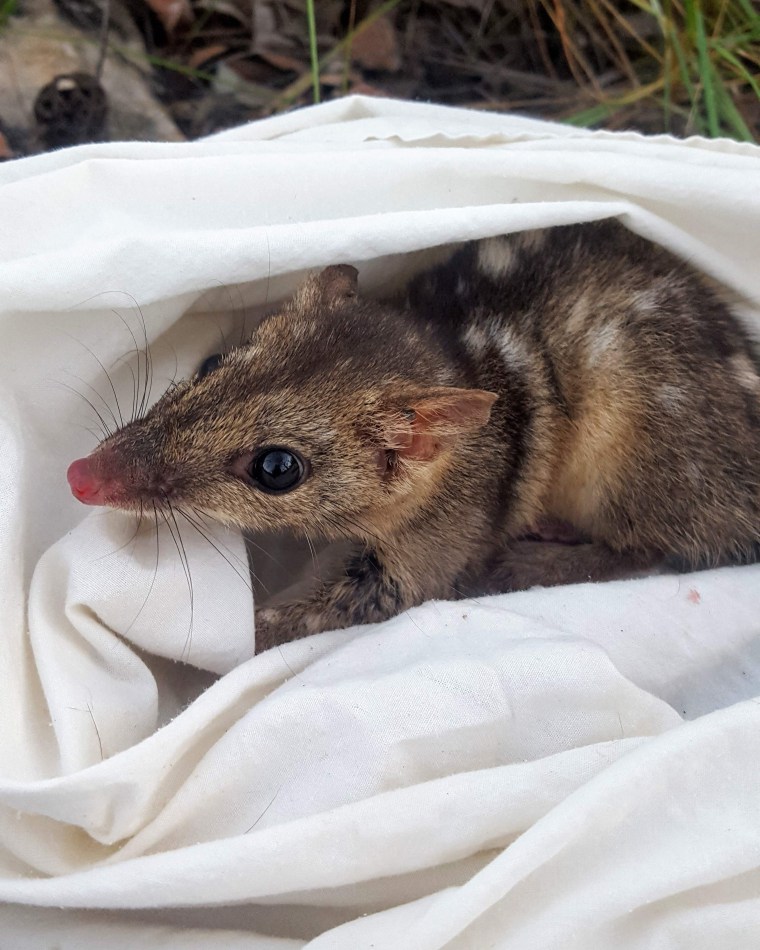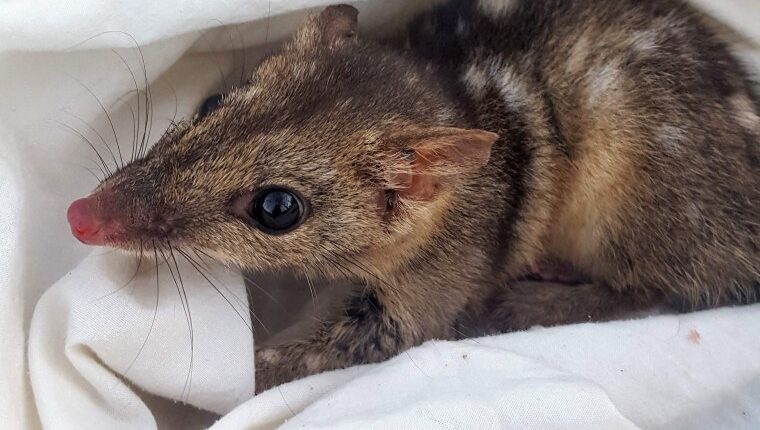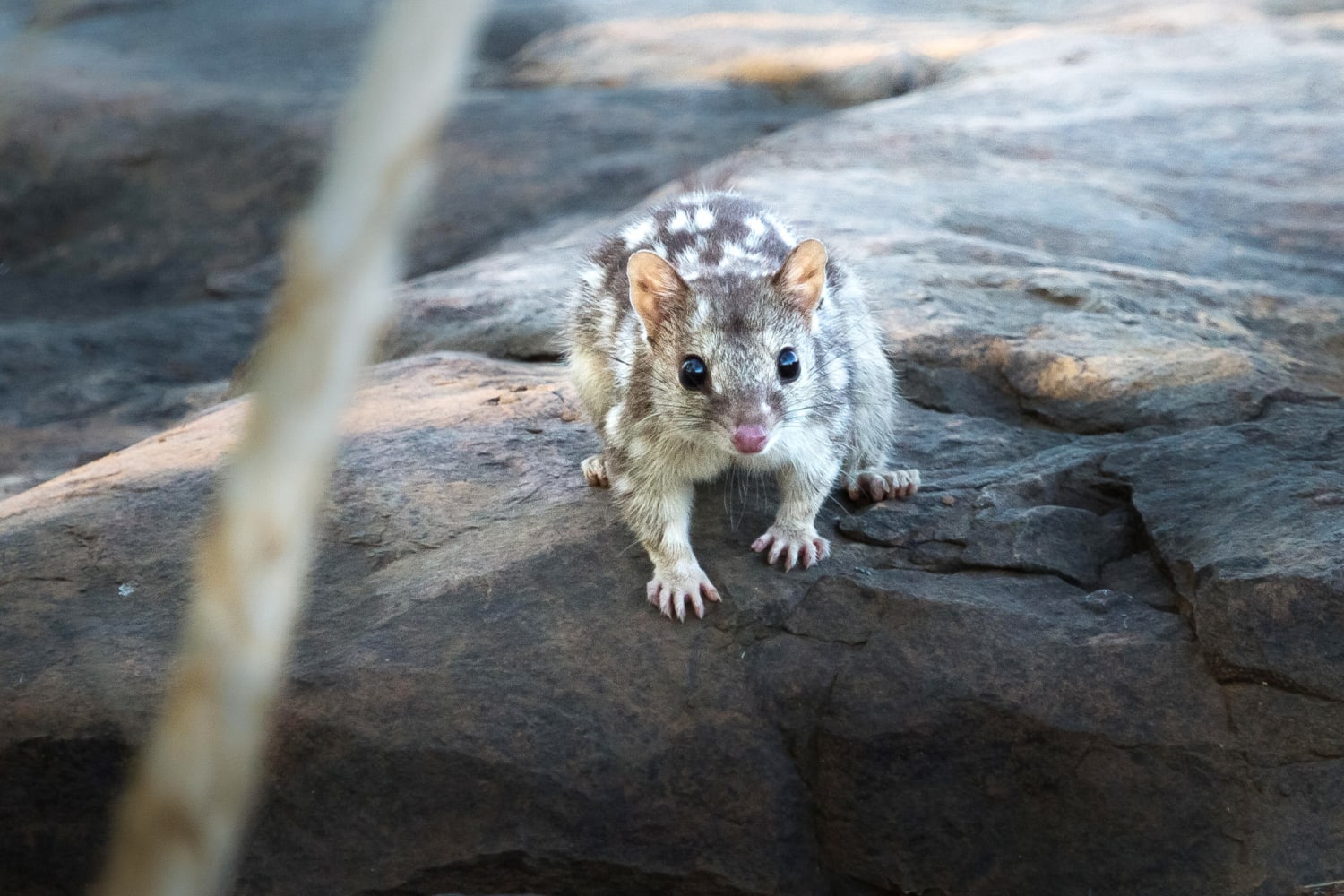A small endangered marsupial is dying for sex — literally.
The male northern quoll — a carnivorous mammal about the size of a small domestic cat — is walking so far and sleeping so little in its desperate search for a female mate that it may be causing its own early death, according to a study published Wednesday.
The quoll lives in parts of western and northern Australia and is known for its unusual mating habits. The males are so-called suicidal reproducers that die after a single mating season, while females continue to live and breed for as long as four years.
Now new research from two Australian teams, at the University of the Sunshine Coast and the University of Queensland, has shed light on why that may be.
The researchers fitted tiny backpacks with trackers onto both male and female quolls on Groote Eylandt, a large island off the coast of Australia’s Northern Territories, and found striking differences in male and female behavior.
A machine-learning algorithm was then used to analyze more than 76 hours of recorded footage and predict quoll behavior over a 42-day period.
Their findings, published in the Royal Society Open Science, suggest that males become so exhausted that they fail to find enough food or stay sufficiently alert to predators.
One male, which researchers named Moimoi, walked 6.5 miles in one night in search of a mate — a distance equivalent to an average-size human walking up to 24 miles, researchers said.
Joshua Gaschk, who led the study, said in a statement: “Sleep deprivation, and associated symptoms for a prolonged duration would make recuperation impossible and could explain the causes of death recorded in the males after breeding season.
“They become easy prey, are unable to avoid vehicle collisions, or simply die from exhaustion.”
The health risks of sleep deprivation in rodents is well documented, and the quolls the researchers studied were found to lose weight, become aggressive and display reckless behavior.
To make finding a partner even more troublesome, male quolls’ appearance suffers and they attract an increased number of parasites due to a lack of grooming, the study found.
Several other animals including some fish and insects put all their energy into just one breeding season — a process known as semelparity — but the quoll is the largest mammal known to do it.

Jack Ashby, assistant director of the University Museum of Zoology in Cambridge, England, and an expert on Australian mammals who was not involved in the quoll study, explained that all animals incur a cost on their own body and long-term survival to produce their young. Normally these costs are weighted equally throughout the parents’ lives.
“Male suicidal reproducers — which, among mammals is a strategy that has evolved more than once in marsupials, but in no other groups — have taken this compromise to the extreme, sacrificing literally everything for one breeding event,” he told NBC News via email.
“‘Live fast, die young’ is certainly the way of things for these species. However, that maxim typically ends, ‘ … and leave a good-looking corpse.’ This is definitely not what happens here.”
During Ashby’s own fieldwork in the monsoonal forests of northern Australia, he said he found male northern quolls toward the end of their short breeding window. “They are balding, covered in scabs, sores, ticks and other parasites — it’s clear that their bodies are shutting down,” he said.
“It certainly makes sense that the efforts that they put into finding mates during that period would lead to a lack of sleep and less time for looking after themselves generally, as this new study suggests,” he added.
Christofer Clemente, one of the researchers behind the study, said that the future of the quoll is under threat, but not because of mating.
“It’s conservation status is: Endangered (Population decreasing), mostly due to habitat loss, along with the introduction of invasive species like dogs, cats, foxes and cane toads,” he said.
The team want to continue their work and look at the effects of sleep deprivation in other marsupial mammals in Australasia, such as opossums and Tasmanian Devils.
A cane toad weighing almost 6 pounds was recently found in northern Australia and dubbed “Toadzilla.”
Source: | This article originally belongs to Nbcnews.com










